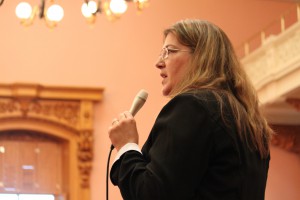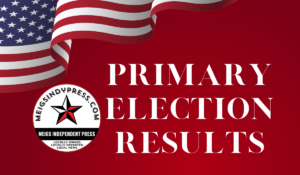Rep. Phillips Seeks Tighter Control on Waste Disposal, More Local Input in Permit Process

Rep. Debbie Phillips addresses collegeagues during a session of the House. File photo from the office of Rep. Phillips.

COLUMBUS— State Rep. Debbie Phillips (D-Albany) on April 14, 2016, introduced House Bill 522, legislation to tighten regulations on injection wells. The bill will ban the use of Class II injection wells for fracking waste and instead require the use of Class I injection wells, which are designed for hazardous materials and require monitoring for leaks.
“We know the waste going into these wells contains dangerous chemicals and has a troubling history of spills,” said Phillips. “Our state and our region have become a dumping ground for waste produced in other states, exposing our citizens to toxins and carcinogens. Treating fracking waste the same as other toxic waste will keep people in our communities and across Ohio safe.”
While the U.S. and Ohio Environmental Protection Agencies have deemed the Class II injection well regulatory program in Ohio acceptable, some have concerns that remain about oversight and contamination of drinking water. Fracking waste has been shown to be radioactive and to contain volatile organic compounds like benzene. Opponents of fracking note past fracking site accidents have proven devastating, harming wildlife and forcing evacuations. Injection of fracking waste has also been linked to the recent surge in earthquake frequency in Ohio and in other parts of the country.
According to Rep. Phillips, House Bill 522 will also provide for some local input in the permit process for injection wells, requiring applications be sent to local elected officials before being approved or denied by the Department of Natural Resources. In addition, the legislation will require information about the chemical makeup of waste be available to first responders, prohibit open pits of waste, and levy a one cent per barrel tax on injected waste to cover costs of implementation.






